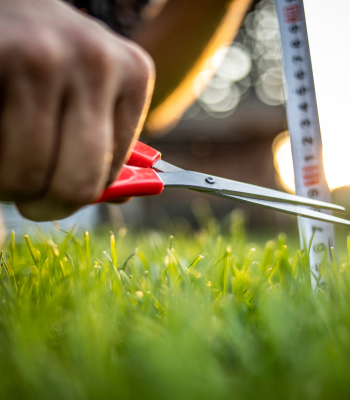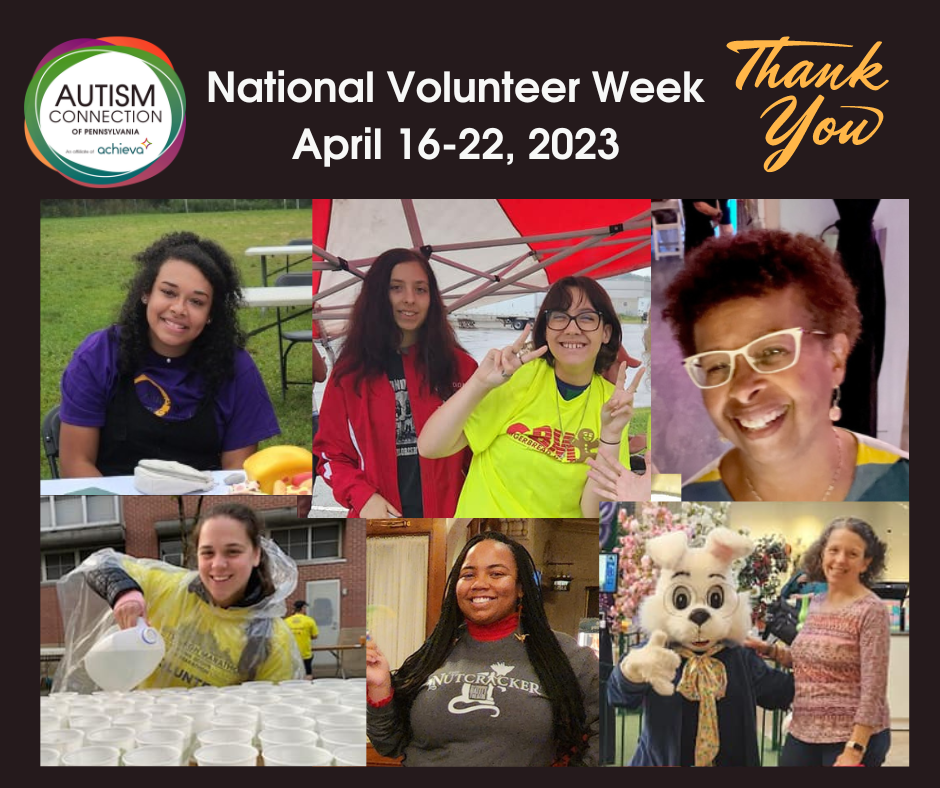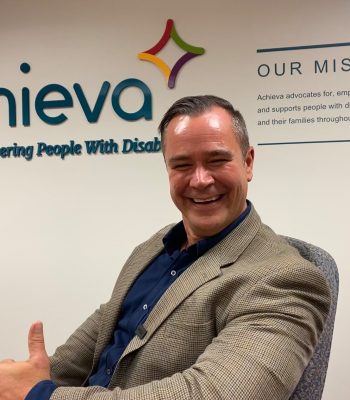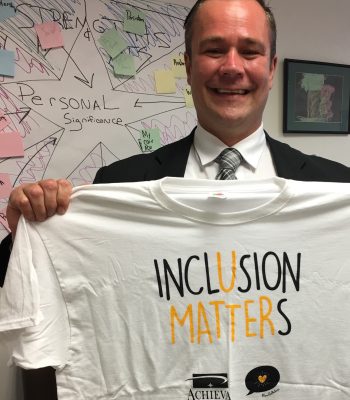Looking for a way to positively impact an autistic teen or adult in your orbit? Consider hiring them to cut your grass. I’ve done this twice and here is what I have learned so far:
Grass cutting is a social skill.
Grass cutting requires knowing what the boss wants the lawn to look like. My first employee was a man with intense support needs who is non-speaking and always thinking! He loved cutting with a rotary mower – the old fashioned kind your gramma had. That made a kind of grass “confetti” he loved to create and then watch it fly. This means he really liked to cut grass in short, choppy bursts, and his original method made results akin to crop circles.
Did I care? Not really. Did I shape that behavior to straight lines anyway by standing across the lawn and asking him to come toward me? Yes, over time, since maybe he could transfer this skill to another customer. But to be honest, the artist in me loved the crop circles and I kind of miss that lawn art.
Expect an eye for detail.
This same young man learned to “look for it” when prompted – he would look around for the longer patches of grass, and take a run at them. He enjoyed this method and it took advantage of his strong visual system. My second helper might pause as falling maple seed “helicopters” fly by. Those catch his eye for a few seconds. That’s okay. He still gets the job done really well and with a great attitude.

Pay real money, at market rates.
If someone is doing a job for you, it’s only right to pay what someone else would make if the end result is similar or even better! Pay immediately (I am working on this as cash on hand is not something I am used to having). This reinforces the work behavior and is most respectful.
It’s okay to pay in advance.
And teach what an advance means. Sometimes I do this because I only have $20 dollar bills, and our rate is an odd number. But I still want to pay on time so I give and talk about an advance, especially noting that not all bosses do this – I don’t want to set up an unrealistic expectation for his next job. Hold the person accountable to the task owed to you in a timely manner so everyone wins.
Appreciate behavior you may not expect.
My second lawn person laid down on the grass the first time he cut it to eyeball everything, making sure it was even. He looked like a golfer lining up a putt. I said “You are super attentive to detail and that’s admirable.” He didn’t feel the need to check like that after the first time he made sure things turned out right. I did not correct him – he seemed satisfied with that one and only quality assurance check.
Again, win/win.

Point out visual results.
My autistic friends tell me the best jobs are ones where they can visibly see change as a result of their work. Recently I taught my new helper how to manually edge the lawn. Once he got the hang of it, the work went quickly. Then we stood and I pointed out how neat it looked, and once he focused on that, he smiled. The next time he cut the grass, he finished, stopped and looked around at both the edging and the lawn, and said for the first time “Look how great it looks!” It’s possible he missed that in the past and didn’t look at the big picture. Helping people appreciate their own good work is a great practice we all could do more!
Don’t sugar coat things.
If you ask your employee to do something new, you may hear “I don’t want to do that.” Explore what he or she is thinking. That may mean “I’m not confident in that skill” or “I have no idea what you expect,” or “I don’t like it.” Help the person learn the new thing if that’s what you think is going on. And if it’s truly “I don’t like that weed whacking” then it’s okay to say, “Well, I can’t pay you for that part then if I need to do it myself.” Fair is fair, and teaching this early on is respectful.
In the same vein, if something is done poorly, point it out and ask why they think that happened. Maybe they got distracted and missed a spot. Or you may hear something like “Well, it’s been a really long time since I’ve done that,” which may mean, “I don’t remember how” or “I don’t know how and I am too shy to say so.”
Give the person time to explain and see what you as a supervisor can do to help. Autism is in part a communication disorder and sometimes it takes a little detective work to figure things out and that’s okay.

Know what motivates the worker.
In my current situation, money = Apple products. The request for a very significant raise this season was because this worker wanted a new tablet. I explained that bosses pay a rate for a job regardless of what the employee might want to buy and that a financial goal is not the employer’s concern, but it’s really good to have one. This led to a discussion about fair market rate and about the cost of living increase over last year. So this worker negotiated a raise, just a smaller one than he proposed, and not one based on the latest tablet upgrade he wants. Last night I paid him cash immediately and he exclaimed “THIS IS A NEW APPLE PENCIL!” Tying cash money to a tangible spending goal is a really great skill to see in a young worker! And it honestly reinforces my having cash on hand for him.
Teach about how this job can help get future jobs.
We have had discussions about what other jobs my helper is interested in (restaurant work). We’ve talked about me as a “reference” and discussed how new bosses want to check references. “Are you on time? Do you learn fast? Do you take correction with a positive attitude? Do you finish your work? I would say YES to all those things. That makes me a good reference.” This got a response of “OH!” and now this young man knows a new thing about the hidden curriculum of work.
I learn more every single time it’s lawn cutting day. This current worker decided to leave one third of the job to do today because he likes getting paid twice in one week, it seems. Or maybe yesterday he met his goal of an Apple pencil, and today he is starting over with a new quest. That’s fine with me.
Having his help sometimes feels priceless! I benefit from his positivity and also of course, from the labor I don’t need to do so I can focus on other chores. So I recommend you think about that kid down the block, or a relative perhaps, and consider being their first boss. Who knows, you might kick off an entire career for someone while making your life a little easier in the process.




















